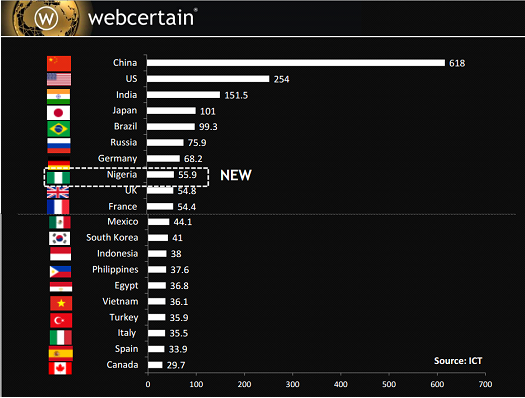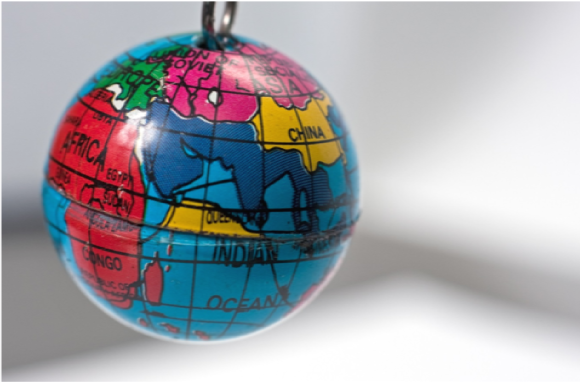At the last event I was speaking at, one of the attendees asked me a very simple question: “Should I go international?” At first, I did not really get the intention behind the question so I asked him to repeat. “I have a small business in New York and I would like to know if I should go global”. You might think that the guy should maybe know the answer himself but when you really think about it, this is a very good question and one that everybody must have asked themselves at some point!
For many businesses, they’ve already answered the question with a yes. And it’s never been easier – going global is no longer out of reach for the masses and no matter where you’re based or how small or large your business is, you can grow your business internationally online.%GC_SERVICE=457%
I often work with clients who are already thinking about at this stage and want to start promoting their products or services in foreign markets. They already have an idea of where they want to go and what they want to promote but this can sometimes be tricky. Often, there can be a gap between where the best opportunities are and where and how a company would like to target.
So whatever your business or industry, the most important question you should ask yourself is:
“Are there any opportunities for me to sell my products/services globally and if so, what are the steps I should take?”
This is definitely a question you can’t answer before having a closer look and in order to do so, you need to go step by step.
1. What are the global opportunities?
It is very important to have a look at local internet users’ behaviour data to make sure you can understand the full picture of the market.

What countries show a growing internet population? What countries are top 10 in terms of e-commerce…? All those stats will help you identify where opportunities might exist – often these might not be the places you expect! Of course, this information on its own isn’t enough – as every industry, and every business, is different. Once you have some possible targets in mind, you need to look a bit deeper.
2. Can I legally trade my products in the countries I would like to target?
There is no need to go any further if the answer is no. Check if you can advertise your products in a particular country and that you are not going to spend money on a promotion that is not allowed. Did you know that in Russia, you can’t sell raw materials for pharmaceuticals that are derived from reindeer breeding – random, isn’t it?

3. Keyword research – Is the local audience eager to find what I offer?
Keyword research is still important! Yes, search engines tend to be better at understanding your queries but it does not stop people from searching with their own words. Good keyword research will give you a good overview of how popular your product or service can be in a particular market.

Just bear in mind a keyword research is not simply putting a few words into Google Translate then the Keyword Planner tool – unless you want to fail and base your international strategy on sand. Trust native speakers, they will be able to uncover the variety and scope of keywords used in each market and give a much more accurate picture on what your target audience is really searching for. It’s worth investing in this step to make sure to get it right from the very beginning!
4. Planning time!
So now you have the keywords and you’ve had a look at competition, search volume and the products or services with the most important local potential. You can therefore put a roadmap together! Prior to doing so, you need to define your business goals for the target countries. The keyword data you can also see what country / language you should target first and decide which product pages you need to translate to begin with. Not all products/services are popular in all markets so you can focus only on those likely to bring you success. It is always advisable to make your website SEO friendly at this stage so if you can optimise it with relevant keywords now, do it! It will save you time and money in the future and give your website greater visibility from the get-go.

5. How should I promote my localised website?
You have your website in the target local language. And then? You can’t just leave it like that and wait for it to be found by your target audience… You need to help the internet users find it!
Diving into all of the tactics and planning would be another blog post, but what is important to remember here is that online marketers have more tactics, platforms and channels available to them than ever before and it’s essential to choose the most appropriate ones that will help you meet your goals in each target market.
So before you start, you need to ask yourself some crucial questions including:
- What do you want to achieve? What are your promotional goals in each market? Always bear in mind that your promotional goals need to support your business goals in general.
- Is there a particular timeline you want to achieve the goals in?
- Do you know the personas you want to target and do you understand their needs and behaviours?
- What are the online trends in each target market? Is mobile search more popular than desktop? Is there a local search engine or social platform that outperforms the well-known global players?
The questions won’t stop there – but these should be a starting point. Make sure you have the answers before you start investing time and money in campaigns that might work against rather than towards your goals.

So ladies and gentlemen, are you finally ready to conquer the world?









